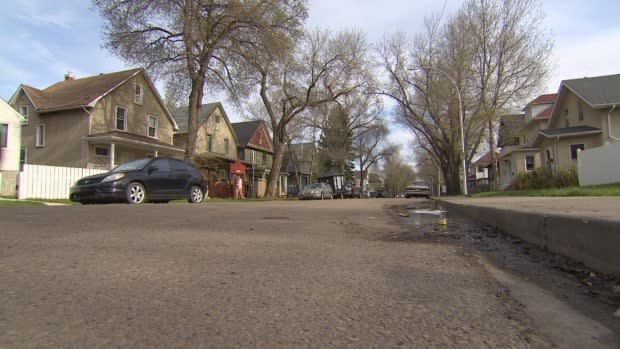New grant program aims to redevelop problem properties into affordable housing

A new city initiative looks to help non-profits turn problem properties into affordable housing.
The $1.5 million pilot program offers up to 40 per cent of construction costs for the redevelopment of properties that have a detrimental impact on the community.
"We're hoping to put forward some money that would help pay for the redevelopment of those sites and inject new life and new families into the neighbourhood," Colton Kirsop, manager of project development with affordable housing and homelessness, said in an interview with CBC's Radio Active.
The city has defined some of the qualities of problem properties, including property deterioration, safety concerns, fire risks and nuisance conditions like repeated calls for service. It will be up to the applicant to find suitable properties and bring their proposal to the city.
Kirsop said the idea for the grant came from engagement with neighbourhoods concerned with the condition of some homes and wanted the city to incentivize redevelopment.
The grant is only available to non-profits. Properties are required to be affordable housing for 20 to 40 years.
The city is open to the idea of renovation but hopes to encourage tear down and replacement, Kirsop said.
"We'd really like to see some new family oriented and also single-oriented housing that would go up in replacement of these properties that have really become a bit of a drag on their neighbours."
Cam McDonald, executive director of the Right at Home Housing Society, said the pilot could make a real difference in the city.
"This initiative gives us an opportunity to do some small scale infill," he said.
The society has some 300 units of affordable housing distributed throughout the city but its roots are in north-central Edmonton, McDonald said. Those mature neighbourhoods have aging housing stock that need to be replaced.
The pilot is a chance to improve that stock while also providing affordable housing for low-income households.
"It's reasonably balanced as to how to redevelop a neighbourhood," McDonald said.
"We want to, of course, allow new families that can build brand new homes to come into the communities and flourish," he said.
"But we also have to be mindful of the fact that there are already people in the community with really low income that really need a good decent place to live in that they can afford."
In September, Mayor Don Iveson sent a letter to the federal government asking for $378 million for affordable and supportive housing.
In the letter, Iveson said that about 1,900 people in Edmonton have precarious or no housing and that 600 are counted as the most vulnerable in urgent need of immediate housing.
In 2018, the city approved the $133 million Affordable Housing Investment Plan with the aim to create 2,500 new units by 2022. A fall report said the city had added 438 affordable units in 2018 and 2019.
As of February, council has approved support for 1,187 units of affordable housing and 289 units of supportive housing, according to the pilot's news release.
Applications for the grant are being accepted until May 24. The city hopes to make funding approvals by June, Kirsop said, giving applicants a maximum of two years to complete projects.

